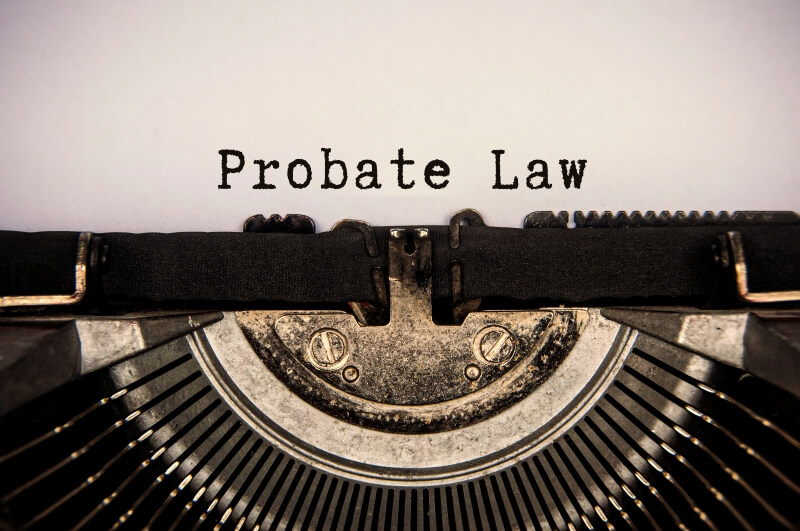How To Navigate The Probate Process For Complex Estates
Probate is often the first legal hurdle families face after losing a loved one. For estates with significant or unusual assets, the process can seem overwhelming. However, understanding the steps and having a clear plan can help simplify the journey. Probate settles an individual’s debts and distributes assets according to their wishes or California law.
Think of probate like assembling a jigsaw puzzle. The process can initially feel tedious, but each step adds clarity until the whole picture emerges. However, you can confidently navigate the legal system by breaking it into manageable pieces. This blog provides a roadmap to help families manage estates efficiently and with peace of mind.
Understanding Probate In California
Probate in California involves legal oversight to manage and distribute a deceased person’s estate. This court-supervised process ensures debts are paid, assets are distributed, and disputes are resolved according to the law. While this structure provides order, it requires strict adherence to legal timelines and procedures.
In California, probate begins with filing a petition in the appropriate court. The probate court monitors the executors, ensuring they fulfill their fiduciary duties to creditors, beneficiaries, and the estate. Executors must handle tasks such as notifying interested parties, managing assets, and submitting reports to the court.
Picture probate as a referee at a soccer game. The court ensures everyone plays by the rules, keeping the process fair and transparent. Although this structure can seem rigid, it protects the estate from mismanagement or fraud.
Understanding probate’s role is essential for handling estates effectively. With this foundation in place, the next step is identifying what makes an estate more challenging to administer.
Identifying Complex Estates
Estates can vary greatly in complexity, depending on their size, composition, and family dynamics. A “complex estate” typically inclu des a mix of high-value assets, unique property, or legal disputes. Estates with significant real estate holdings, business interests, or multiple jurisdictions require additional oversight.
For example, an estate with foreign investments or business partnerships may involve navigating international tax laws. Similarly, disputes over the validity of a will or the inclusion of certain heirs can slow probate significantly. Executors must also handle detailed accounting, ensuring every asset is valued correctly and allocated.
Think of a complex estate as a Rubik’s Cube. It may take time and careful thought to align every piece correctly, but the task is manageable with persistence.
Identifying complexities early allows families to prepare for potential obstacles. Once these factors are understood, the probate process can begin with confidence.
Initiating The Probate Process
The probate process begins with filing a petition in the appropriate California court. This petition requests the court to recognize the executor named in the will or appoint an administrator if no will exists.
Once approved, the court issues either letters of testamentary or letters of administration, which grant the executor legal authority to act on behalf of the estate. Without these letters, the executor cannot manage assets, settle debts, or distribute property.
One of the executor’s first tasks is to notify all interested parties, including heirs, creditors, and beneficiaries. California law requires sending written notices to individuals named in the will and any other potential heirs. Additionally, a public notice must be published in a local newspaper. This step ensures creditors are aware of the probate proceedings and have the opportunity to file claims against the estate.
During this phase, the executor must gather initial documentation, such as the death certificate, will, and financial records. These documents provide a foundation for managing the estate and addressing potential legal questions. Missing or incomplete paperwork can slow the process, so thorough preparation is essential.
Think of this stage as setting the stage for a performance. The executor organizes key elements, ensures everyone is informed, and creates a structure for the tasks ahead. The executor can proceed with cataloging the estate’s assets—a critical step in the probate process.
Inventory & Appraisal Of Estate Assets
Creating a detailed inventory of estate assets is a pivotal step in probate. Executors must identify, list, and value every item the deceased owned. This includes tangible assets like real estate, vehicles, jewelry, and personal belongings, and intangible assets like bank accounts, stocks, and life insurance policies. The inventory ensures the estate is accurately valued and helps protect the executor from claims of mismanagement.
Certain assets require more specialized attention. Unique or high-value items, such as rare artwork, antiques, or intellectual property, often need professional appraisals. Executors may also face challenges when locating hidden or undocumented assets, such as offshore investments or safe deposit boxes. Collaborating with appraisers or forensic accountants can help uncover and properly assess these items.
Once all assets are identified, California law requires submitting an official inventory and appraisal form to the probate court. This document includes the value of each asset, as determined by the executor or a court-appointed appraiser. Accurate reporting is critical, as it forms the basis for tax filings, debt settlement, and final distributions.
Think of this step as creating a detailed map. Each asset is a landmark, and the map guides the rest of the probate process. A comprehensive inventory ensures transparency and fosters trust among heirs and beneficiaries. With the assets documented and appraised, the executor can proceed to address any debts or liabilities associated with the estate.
Managing Debts & Liabilities
Addressing debts is a critical part of probate. Executors must identify all outstanding obligations, including mortgages, credit card bills, and medical expenses. California law requires creditors to file claims within a specific timeframe, usually four months from the notice publication.
Executors are responsible for validating these claims and prioritizing payments. Secured debts, such as mortgages, are typically paid first, followed by taxes and unsecured debts. Disputed claims may require court involvement, adding another layer of complexity to the process.
Picture this phase as balancing a checkbook. Every dollar must be accounted for, and the estate’s solvency must be protected. Executors who manage debts carefully prevent unnecessary legal challenges and ensure a smooth path forward.
Once debts are resolved, the estate can focus on addressing tax obligations.
Tax Considerations In Complex Estates
Taxes are a pivotal part of probate, particularly for large estates. Executors must file the deceased’s final income tax returns and may need to prepare estate tax returns. California also imposes state-specific rules that executors must follow.
Understanding deductions, exemptions, and credits is essential to minimizing the estate’s tax liability. Executors often consult tax professionals to navigate the detailed requirements of federal and state laws. This is especially true for estates with foreign investments, trusts, or significant business holdings.
Taxes can feel like the final hurdle in a marathon. While the process requires focus, careful preparation ensures a successful outcome. Once taxes are addressed, the executor can move to the final step—distributing assets to the beneficiaries.
Distribution Of Assets To Beneficiaries
Distributing an estate’s assets is the final step in the probate process, where beneficiaries receive what the will dictates, or California’s intestate succession laws. Executors must follow precise legal protocols to ensure a fair and transparent process. This step requires careful planning, as mistakes can lead to disputes or delays.
The first task is interpreting the will. If the will specifies detailed instructions for specific items, such as jewelry for a grandchild or a property for a sibling, these distributions take priority. For estates without a will, California intestate succession laws determine the order in which heirs inherit, starting with spouses and children. Executors must ensure all legal guidelines are strictly followed during this phase.
Some transfers, such as real estate or business shares, involve additional steps. Executors must transfer deeds, update titles, and prepare legal documentation to confirm the new ownership. Executors may also need to work with legal or financial professionals to handle these transitions smoothly. Beneficiaries typically sign receipts to acknowledge their inheritance, providing legal confirmation that the distribution was completed.
Think of this step as the estate’s final act. The executor ensures everything is in place, resolving any lingering issues before handing over the assets. The executor can prevent misunderstandings and safeguard the beneficiaries’ interests by maintaining clear records and open communication. With assets distributed, the executor closes the probate process, bringing resolution to the family and the estate.
Avoiding Common Pitfalls In Probate
Probate often encounters hurdles, but proactive planning can avoid many issues. Executors should anticipate common challenges like missing documentation, family disputes, or missed deadlines.
Clear communication with all parties is essential. Providing regular updates and maintaining transparency reduces misunderstandings. Additionally, executors should stay organized, keeping meticulous records of all estate-related activities.
Imagine probate as following a recipe. Missing an ingredient or step can lead to frustration, but a little preparation makes all the difference. Families can avoid these common pitfalls with care and attention and complete the process smoothly.
For families managing estates in Los Angeles, seeking professional guidance can simplify even the most challenging situations.
Los Angeles Probate Attorneys
Probating an estate in Los Angeles involves navigating California’s legal landscape with precision. Legal representation can make the process more manageable, efficiently and correctly handling all tasks. At Los Angeles Probate Attorneys firm, we are your staunch ally in dealing with complex estates.
Our services include probate administration and litigation, and trust administration and litigation. By addressing legal and administrative concerns, our attorneys allow families to focus on their personal healing. A client-centered approach ensures every case is handled with care and personalized strategies.
We understand the unique challenges of large estates. That’s why we work closely with families to resolve disputes, manage deadlines, and protect the estate’s value. With our skilled guidance, you can feel confident that the probate process is in good hands.
If you’re managing an estate in Los Angeles, consider consulting a probate attorney. Professional support ensures a smoother process and protects your loved one’s legacy. Reach out today to learn more about simplifying the process and preserving your loved one’s legacy.
Summary
Probate can feel like a maze, but understanding its steps makes it manageable. Each phase plays a vital role in protecting the estate’s integrity and beneficiaries’ interests, from filing petitions to distributing assets.
This article outlined the probate process, focusing on critical tasks like inventory, debt resolution, and tax compliance. Proper planning and professional support are essential to avoid unnecessary complications.
For families in Los Angeles, legal assistance can provide the clarity and confidence needed to complete probate efficiently.










